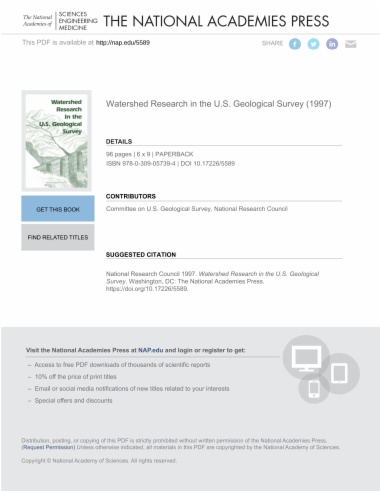

Watershed research is conducted by the U.S. Geological Survey (USGS) to expand our understanding of basic hydrologic mechanisms and their responses at the watershed scale and to provide information that serves as the basis for water and environmental management activities carried out largely by other governmental and private entities. The work of the USGS in this area is carried out by its Water Resources Division and occurs in three general program areas: basic research, regional and site assessments, and data collection. These activities are becoming increasingly important, especially in the context of water and environmental management, where contemporary problems are being approached more than ever on an integrated ecosystems or watershed basis and where the underlying physical, chemical, and biological science is complex.
Although the value of this type of hydrologic research is well recognized within the USGS, available financial resources to support it remain modest. Thus, this study seeks to help maximize the effectiveness of the agency's work. The study took two years, during which time the committee visited field sites, received briefings, reviewed descriptive materials, deliberated toward conclusions, and wrote this report. Recommendations are intended to assist the USGS in improving its overall strategy for work in this area; descriptions of a number of scientific opportunities are included, and appropriate circumstances for collaboration with and support for others are identified.